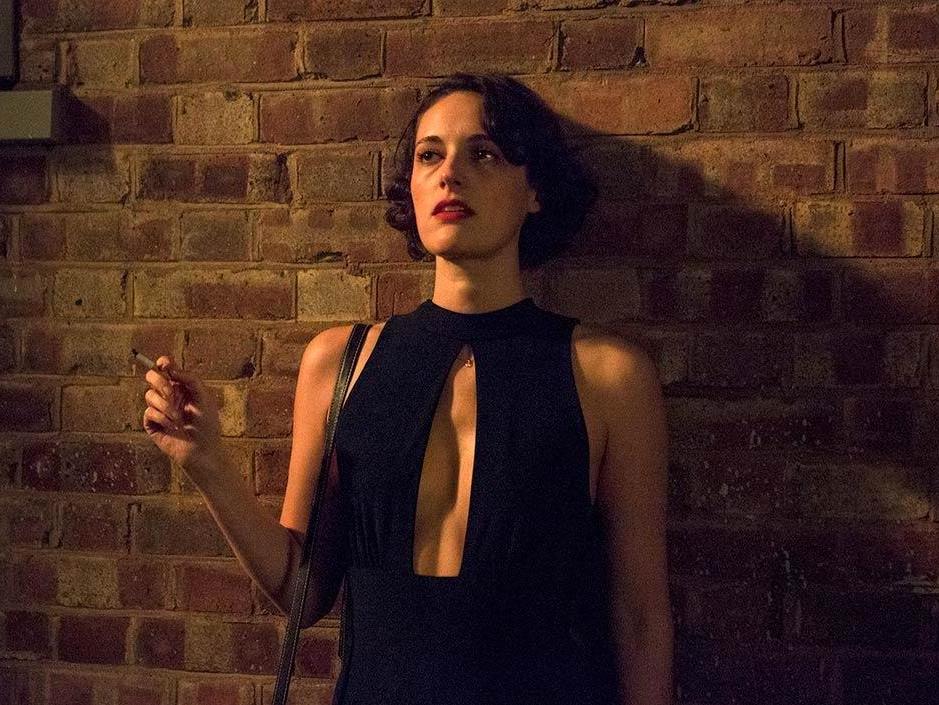‘Sometimes I wish I didn’t even know that f**king existed’: How Fleabag altered the way women in comedy talk
In our weekly arts column, Fiona Sturges looks at how Phoebe Waller-Bridge has opened up a whole new dimension in storytelling and why, although critics are right to discuss the show’s issues of class, sometimes there’s just no arguing with genius


I’ve spent most of my adult life using sex to deflect from the screaming void inside my empty heart,” reflects the protagonist of Fleabag, who, two series in, still hasn’t told us her name. It’s one of many delicious weirdnesses in this wayward tragicomedy about a woman struggling to contain her self-destructive impulses and find her place in the world. Written by and starring the Bafta-winning Phoebe Waller-Bridge, it hasn’t just altered how women in comedy are supposed to talk and behave, it has opened up a whole new dimension in storytelling. Watching Fleabag, I have pinballed between laughter, astonishment and utter devastation, sometimes in the space of a minute.
Amid its funny, poignant snapshots of turbulent family get-togethers, drunken one-night-stands and half-hearted attempts at rehabilitation, the series has built a picture of a woman undone by her mother’s death from cancer and by the suicide of her best friend, Boo, following a major betrayal. If you have suffered a bereavement, you will instantly identify with her sense of being an outsider, as if looking at life through a pane of glass. There’s also the relentless provocation from her ghastly, self-regarding godmother (Olivia Colman) as well as her gaslighting brother-in-law, Martin. Still, Fleabag’s ability to screw up and alienate those close to her borders on pathological. Her life may be underscored by tragedy, but she is the sole author of her misfortune.
Comedy drama has long specialised in flawed women, many of them two-dimensional characters destined to labour under the delusion that happiness lies in a man and a brace of children. If they are lucky, they might get a hobby or perhaps even a career of their own. It’s significant that, in Fleabag’s case, just keeping her business afloat and her guinea pigs alive is challenge enough. The ticking of the biological clock is conspicuous by its absence: her story, as a thirty-something woman, is not about settling down, popping out babies and building the classic nuclear family; it’s about finding a way to like herself and to stop sleeping with idiots.
It’s significant, too, that at no point does she play for our pity. There’s a brazenness to her self-destruction that goes against the old trope that, on TV, women mustn’t just be shaggable, they must be likeable. Much is revealed in the series in how men see and respond to Fleabag: her father doesn’t know how to talk to her so gives her vouchers in order that she can see a therapist instead; Martin is so frightened by her that the only way he can deal with it is to try and conquer her sexually.
As the second series has unfurled, we have seen some Herculean efforts from Fleabag to be and do better. Determined not to draw attention to herself, she sits in silence for a full 45 minutes during her father’s engagement dinner before being drawn into a drama that culminates, gloriously, in her punching Martin in the face. Along with triggering fresh meditations on morality and religion, the series has also yielded a fresh seam of eroticism, making us complicit in our heroine’s desire for a man (Andrew Scott) who has already pledged his devotion elsewhere. Waller-Bridge can now count among her many triumphs that she has made us suddenly hot for priests. Or maybe that’s just me.

Another of her masterstrokes is in saying a lot while doing comparatively little. Those archly despairing glances to camera – a nod to Fleabag’s beginnings as a one-woman stage show – tell us as much about her inner thoughts and insecurities as seven pages of scripted conversation with a sympathetic best friend. While this breaking down of the fourth wall is a time-honoured device, Waller-Bridge uses it to truly electrifying effect. If we were ever in doubt that Fleabag and the priest have an unusual connection, further evidence comes when, as she addresses the camera, he hears it too – “What was that? Where did you just go?” he asks, startled.
Of course, Fleabag has its doubters, many of whom have rightly raised the issue of class. Television is already awash with solipsistic narratives about moneyed middle-class types and their endless social agonising, and here we have yet another series about a well-to-do metropolitan family. The granddaughter of a baronet, Waller-Bridge certainly comes from a place of privilege that will have helped clear a path to where she is now. But this is not a case of a mediocre talent finding success due to an accident of birth. Posh or not, as the creator of Fleabag and the similarly majestic Killing Eve (developed from Luke Jennings’s Codename Villanelle novella series), Waller-Bridge happens to be one of the finest writers working in TV right now. Sometimes there’s just no arguing with genius.
Rare is the show that, once finished, you want to go back and re-watch it straight away in order to bask in its excellence, but Fleabag is one of them. Following Kristin Scott Thomas’s diatribe on how women have to live with pain while men create it “so they can feel things and touch each other”, I wanted to paint the entire speech in six-foot letters across the front of my house. In grappling with themes such as fear, grief and how we live our lives, Fleabag articulates those things that many of us haven’t quite comprehended but absolutely know to be true. Seriously, just watch it. It’s damned near perfect.
Join our commenting forum
Join thought-provoking conversations, follow other Independent readers and see their replies
Comments
Bookmark popover
Removed from bookmarks